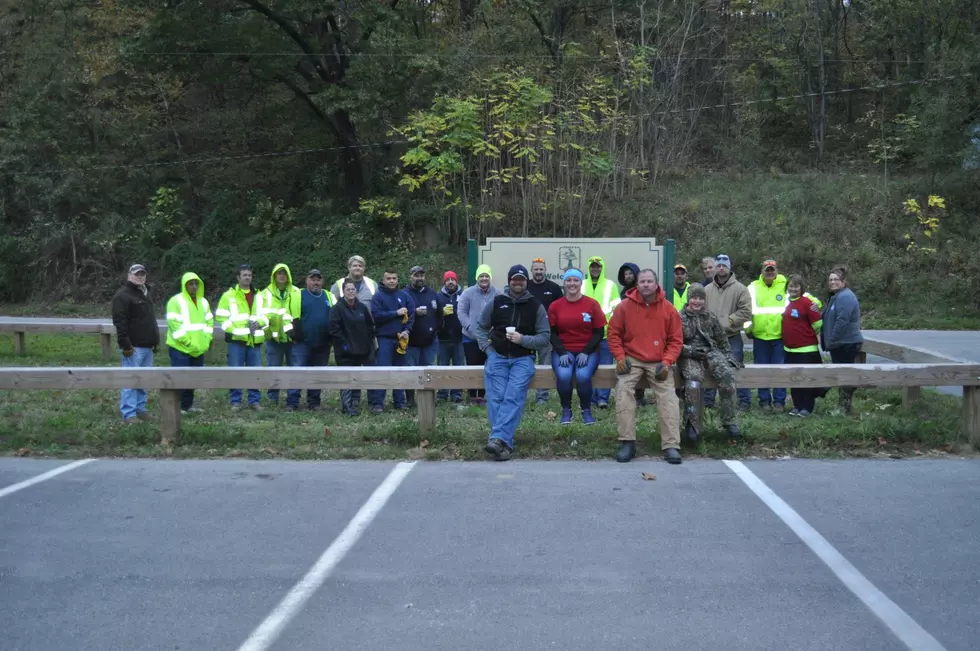
Water Controversy Brings Erin Brockovich to Hannibal
Erin Brockovich delivered a message of encouragement to citizens concerned about Hannibal’s drinking water. The renowned environmental activist spoke to a sizeable crowd Monday evening at the Hannibal American Legion.
Brockovich’s appearance in Hannibal comes just two weeks before voters decide the fate of Proposition 1. Prop 1 asks Hannibal voters whether chloramines—a mixture of chlorine and ammonia—should be discontinued as part of the water purification process. Some citizens groups including Hannibal 2 Oppose Chloramines have raised health concerns regarding its use.
The environmentalist and consumer advocate says she is very proud of Hannibal citizens who got involved in the political process, and became informed and educated on the issues. She says choramines are wreaking havoc across the country. As she “zig zags” across America, she sees “Hannibal after Hannibal’ when it comes to water quality. She commended the concerned citizens who worked to get the issue on the April 4 ballot. Brocovich says if Proposition 1 passes, Hannibal could be a model for other communities.
Brockovich gained notoriety for her tenacious work leading to the1996 legal settlement of a case involving Pacific Gas and Electric in Hinkley, California. The suit alleged PG&E discharged wastewater containing the chemical haxavelent chromium which was linked to cancer. Brockovich says when she saw green water and two-headed frogs in Hinkley, she didn’t go away until she got some answers.
Water quality expert Robert Bowcock teamed up with Brockovich at her Hannibal appearance. Bowcock delved into the scientific aspects of the use of chloramines. He says disinfection byproducts from use of chloramines—though currently unregulated-- are actually more dangerous than use of chlorine alone. Hannibal switched to chloramines in 2015 after being fined by the Department of Natural Resources for excessive disinfection byproducts resulting from use of chlorine. Bowcock also says the ammonia and chlorine combination corrodes pipes, clogs water heaters prematurely, and damages rubber parts used in washers and dishwashers.
Bowcock disputes parts of a water treatment study commissioned by the Hannibal BPW. The Jacobs engineering study says converting over to an alternate method of disinfection such as Granulated Activated Carbon (GAC) could take several years and cost up to 10 million dollars. Bowcock says his opinion is the changeover could be accomplished in weeks and for much less than ten million. He told the crowd the average residential bill might go up $3.60 a month using the best filtration regimen. According to the Jacobs study, rates could go up as much as $7.72 a month.
Citizens will have a chance to hear details of the Jacobs Water Quality Study at a meeting on Wednesday, March 22 at 5:30 p.m. at HLGU’s Roland Fine Arts Center. Representatives of Jacobs Engineering and the Missouri Department of Natural Resources will be on hand to answer questions.
More From KHMO-AM 1070, News-Talk-Sports









